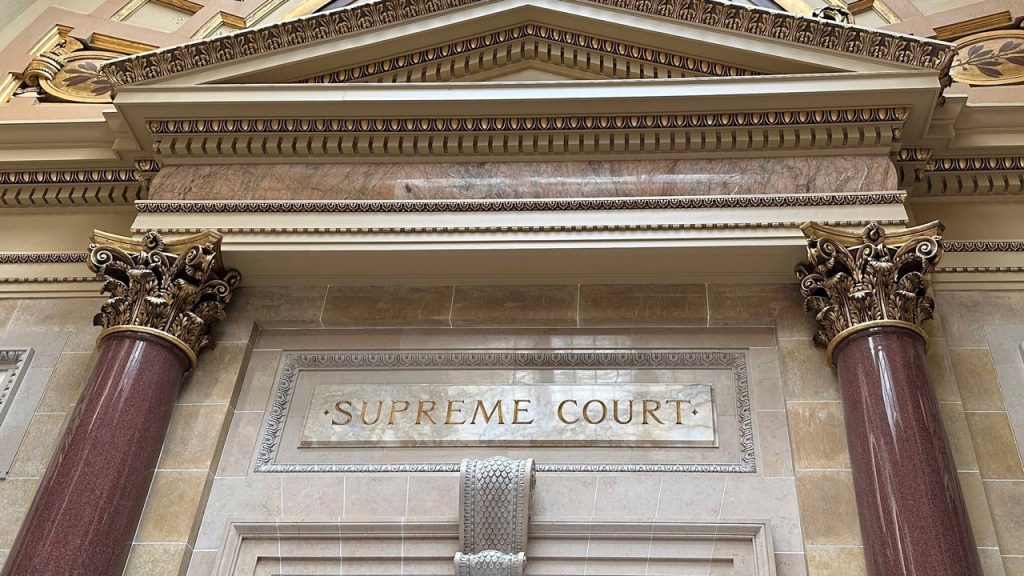The Wisconsin Supreme Court is currently considering a case brought by Democratic Governor Tony Evers against the Republican-controlled Legislature, which could have significant implications for the balance of power between the executive and legislative branches. At the heart of the case is the role of legislative committees, particularly the powerful budget-writing Joint Finance Committee. Evers argues that this committee, controlled by Republicans, is exceeding its authority and essentially acting as a fourth branch of government. The Legislature counters that the committee’s powers are well established in state law and court precedent.
During oral arguments, justices on the court expressed concerns about the potential impact of a ruling in favor of Evers. Issues raised included the separation of powers between the branches of government and the historical precedent of legislative committees having certain powers. Conservative Justice Rebecca Bradley questioned whether the court could make a significant shift in interpreting the powers of legislative committees, while liberal Justice Ann Walsh Bradley suggested that there should be nuance in interpreting the black-and-white argument presented by Evers’ attorney.
The lawsuit against the Legislature focuses on the Joint Finance Committee’s rejection of dozens of conservation projects under the Knowles-Nelson Stewardship Program. This program, established in 1989, provides funding to preserve natural areas, protect water quality and fisheries, and expand outdoor recreational opportunities. Republicans have expressed concerns about the scope and cost of the program, leading to increased legislative oversight. Evers’ attorney argues that the committee’s ability to block approval of stewardship projects is unconstitutional and violates the separation of powers.
Governor Evers has called for the Legislature to be reined in and for the budget committee to be recognized as acting outside its authorized powers. Evers argues that the constitution is clear in giving the executive branch the responsibility to carry out laws passed by the Legislature. This case has the potential to impact a wide range of legislative committees and their powers in Wisconsin, with the court being asked to make a significant decision about the balance of power between the different branches of government.
The Wisconsin Supreme Court justices also discussed the need for further examination of legislative and executive powers before issuing a ruling in the case. Chief Justice Annette Ziegler questioned whether the court should take more time to gather facts and consider the broader implications of the case. A ruling in favor of Evers could potentially upend decades-old practices in the Legislature and have significant consequences for the functioning of state government. The court has stated that a decision will be issued in the coming weeks or months, with the potential to change the landscape of state government in Wisconsin.


